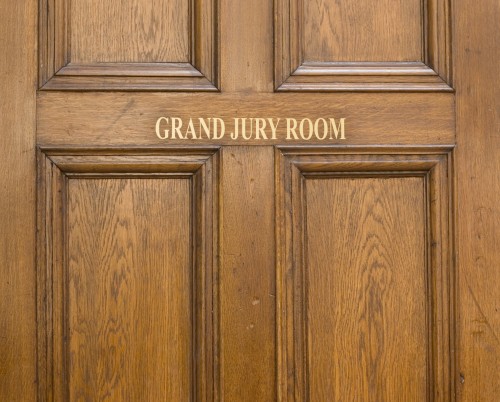


I have received several calls in the past couple of months with questions pertaining to landlord and tenant law. I thought for my next blog entry that it would be a good idea to share what I know with my readers and you all a few pointers. The names of the “clients” have been changed for privacy purposes but the questions and situations are genuine. I hope the following will be helpful.
Sylvia Dorchester asked: I have lived in my apartment for the past six years and the walls are starting to get dirty. I asked the landlord to paint but he said that I would have to pay for the paint and for the workers. This was not something that was in the lease but a friend told me that I should be able to have them painted over again free of charge. What do I do?

Answer: The answer to this question will depend on whether you are in a rent controlled apartment or a rent stabilized apartment. If you live in a rent stabilized apartment you have the right to have the walls of your apartment painted once every three years at the landlord’s expense. If the landlord fails to paint the apartment your remedy is to apply for a rent reduction based on failure to paint as a decreased services argument. However, if you live in a rent stabilized apartment you may be charged by the landlord to recover the cost of painting. The landlord must first show that the painting is not an essential service. If it has been shown that painting is an essential service the tenant can apply for a rent reduction based on decreased services.
Jennifer Brent asked: I have a rent stabilized apartment and I was paying $1,500 dollars per month. My lease term is almost up and I received a notice in the mail that states that I now have to pay about $2,300 every month if I want to renew. Can the landlord make me pay that amount?
Answer: In rent stabilized apartments the landlord has the option to charge a monthly rent that is well below what is called the legal rent, or the maximum amount that the landlord can legally charge for that unit. In order to foster good will and keep tenants paying every month the landlord agrees to allow the tenant to pay rent at reduced rate. The landlord can exercise his or her right to charge the legal rent but must first follow the proper procedure which means that you must be notified of the increase between 90 and 150 days before the end of the lease term. If they do not do this you are entitled to renew the lease and pay the rate you originally paid.
Benjamin Taylor asked: I have been living with my mother in a rent stabilized apartment for the past three years and she recently passed away. Can I stay in the apartment?
Answer: In short, yes you can. If you are a family member of the person who was originally named on the lease you may have the right to a renewal lease. You are required to have lived with the primary tenant at least two years prior to the death of said tenant. If you happened to be in a rent controlled apartment you would have protection against eviction and the lease would pass to you. This is called succession rights.
Julie Brentman asked: I am a landlord of a six unit apartment building. I have a tenant who has not paid his rent in almost three months. When I call him and ask when he will be paying the back rent he states that it is in the works. This is a family business and a way to get a minimal extra income and his delinquency is taking a dent out of my finances. I have never had this problem before. What can I do about it?
Answer: Well, there are a couple of avenues that you can take but I would suggest that by this time you should go for the gusto and start an eviction proceeding against him. It does, however, take some time. He has to be properly be served a 30 day notice and then if he does not leave you have to start the actual eviction proceeding. You will get a court date but again that may not see a judge for another couple of months. The other route would be to give him notice that if he does not pay his back rent you will start proceedings against him in housing court to recover the rent he owes.
Unfortunately, the process for landlords is often frustrating and slow and you may not actually recover the money you are owed. I have seen many landlords give tenants several chances to pay their back rent and after several months the amount owed just keeps piling up. At that point the tenant is just staying in the apartment because they know the court process is very slow and they are buying more time.
Joshua Tan asked: I recently got into a fight with my landlord over some issues in my apartment. The ceiling in my bedroom leaks, the kitchen sink faucet does not work properly, the stove is broken and there are several other issues make the apartment unpleasant in general. I know that the landlord has a duty to repair these things and he just won’t do anything about them. When I call now, he curses at me and he hangs up and will not listen to me when I try to tell him the issues that are wrong with the place. It has been about a month now. What can I do?
Answer: Your first course of action is to call 311 and have a housing inspector come out and assess the violations. There are three types of violations that can be given based on the severity of the violations that the inspector finds. First is the Class A violation which are considered non hazardous condition and the landlord has 90 days to correct it. The Class B Violation is considered a hazardous condition and the landlord has 30 days to correct the condition. The Class C violation is considered to be an immediate hazardous condition and the landlord has 24 hours to correct the condition. If the landlord does not correct the conditions your next remedy is to withhold your rent and go to court to request a rent abatement on the grounds that your quiet enjoyment of the apartment has been violated. Please note that if there are violations found, you must give the landlord access to the apartment to make the repairs within a reasonable time frame.

Discrimination is the unjust treatment of different categories of people or things. In New York State is is illegal to terminate someone’s employment because of his or her race, color, creed, national origin, sex, age, disability, sexual orientation, marital status, familial status, military status, arrest/conviction record and predisposing genetic characteristics. However, because New York is an at will employment state, it may be difficult to prove that there has been discrimination or an illegal reason for the termination. “At will” means that you can be terminated at any time for any reason and the employer does not need to give a reason for it. A termination is only illegal if the impetus for the termination stems from one of the factors stated above.
When an individual (complainant) starts a case against a person for discrimination, it is his or her burden to lay out the facts in such a way as to show a trier of fact that there is an actual instance of discrimination. First the complainant must show that he or she is a member of a protected class. A class of people is just an other way of saying that you fall under one of the categories mentioned above like age or race. The complainant then must show that that he or she was qualified to work in the position he or she was terminated from and lastly that the complainant was terminated under circumstances that create an inference of discriminatory conduct. The employer (defendant) then has the burden to produce evidence that the complainant was terminated for a non discriminatory purpose and that the non discriminatory purpose alone was the reason for the termination. In order to win the case, the complainant must then show that the defendant’s reason for terminating the complainant was, for lack of a better work, bunk.
If a finding is made in favor of the complainant, monetary awards may be given in the tens of thousands of dollars in the form of back pay. This is called a compensatory award. Damages, an award for emotional distress, pain and suffering if there is any, can also be ordered. The complainant can even get his or her job back if that is desired.

New York is a particularly difficult state in which to get a divorce. Traditionally there were about 6 grounds under which couples were allowed to terminate their legal union and they were all designed to try to protect the sanctity of the marriage. The divorce laws were created to try to force couples to stay in the marriage by making the prospect of a divorce a daunting task. As a result, couples were forced to pretend to have marital issues to fit the legal grounds for divorce when the real impetus behind the split was relatively simple. Couples would be rigorously examined about the intimate details about their relationship in open court before a judge would release them from the unwanted relationship. As recently as 2010, however, lawmakers recognized the issue and enacted a seventh ground to get a divorce which makes it easier for parties who are in agreement that the relationship should come to an end. Following is a brief explanation of the grounds under which a couple can file for divorce in New York.
 The sixth ground for divorce is a judgement of separation. If you and your spouse have not lived together because of a decree of separation, also known as a judgement of separation, given by the court for at least one year.
The sixth ground for divorce is a judgement of separation. If you and your spouse have not lived together because of a decree of separation, also known as a judgement of separation, given by the court for at least one year.
If you have been arrested in New York on a minor offense it is likely that you qualify for an Adjournment in Contemplation of Dismissal, or ACD for short. Minor offenses include misdemeanor class offenses that don’t involve a victim and violation class offenses. An ACD means that the case will be adjourned for a period of time, from six months to a year, after which the case is dismissed in the interest of justice. The term “in the interest of justice” is just a way of way of saying that the case is not worth prosecuting, in so many words. Some factors which contribute to the granting of an ACD are that officers are unable to adequately articulate probable cause for the arrest (in which case you should push for an outright dismissal), the prosecution has a very weak case, the individual was arrested for the first time and the alleged crime was relatively minor, and other factors. A misdemeanor class offense can include theft of a small amount of items or items that amount to a low dollar amount, criminal mischief (like damaging or defacing property) and possession of small amounts of drugs to name a few. A violation class offense includes disorderly conduct and simple trespass. If you have been arrested and arraigned on a felony matter you have almost no chance of getting an ACD. Its not impossible, its just unlikely and it will happen later on in the case.
 An ACD under section 170.56 deals solely with marijuana offenses. The period of adjournment under this section is one year after which the case will be dropped. An ACD under this section is special, however, because it does not require the consent of the prosecution. If your defense attorney demands it and you have never had a criminal conviction involving drugs or you have never had another marijuana ACD you are entitled to have it by law. The only way the prosecution can prevent you from getting an ACD is if you have been previously convicted of a crime. In this case, the prosecution has to consent as well. The ACD under section 170.56 of the CPL is also special because it covers marijuana offenses from minor possession of a small amount to sale of the substance to another person. Just to be clear, “sell” under the New York State Penal Law includes giving it to someone without exchanging it for money.
An ACD under section 170.56 deals solely with marijuana offenses. The period of adjournment under this section is one year after which the case will be dropped. An ACD under this section is special, however, because it does not require the consent of the prosecution. If your defense attorney demands it and you have never had a criminal conviction involving drugs or you have never had another marijuana ACD you are entitled to have it by law. The only way the prosecution can prevent you from getting an ACD is if you have been previously convicted of a crime. In this case, the prosecution has to consent as well. The ACD under section 170.56 of the CPL is also special because it covers marijuana offenses from minor possession of a small amount to sale of the substance to another person. Just to be clear, “sell” under the New York State Penal Law includes giving it to someone without exchanging it for money.
Just as a side note, if you don’t want to deal with the process of getting a marijuana ACD in the first place here are a few things you can do to keep yourself from getting arrested.